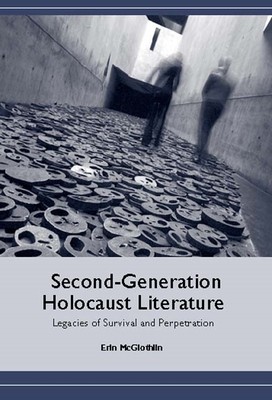
- We will send in 10–14 business days.
- Author: Erin McGlothlin
- Publisher: Camden House (NY)
- ISBN-10: 1571133526
- ISBN-13: 9781571133526
- Format: 16.1 x 23.6 x 2.2 cm, kieti viršeliai
- Language: English
- SAVE -10% with code: EXTRA
Reviews
Description
Expands the definition of second-generation literature to include texts written from the point of view of the children of Nazi perpetrators.
Among historical events of the 20th century, the Holocaust is unrivaled as the subject of both scholarly and literary writing. Literary responses include not only thousands of autobiographical and fictional texts written by survivors, but also, more recently, works by writers who are not survivors but nevertheless feel compelled to write about the Holocaust. Writers from what is known as the second generation have produced texts that express their feeling of being powerfully marked by events of which they have had no direct experience. This book expands the commonly-used definition of second-generation literature, which refers to texts written from the perspective ofthe children of survivors, to include texts written from the point of view of the children of Nazi perpetrators. With its innovative focus on the literary legacy of both groups, it investigates how second-generation writers employsimilar tropes of stigmatization to express their troubled relationships to their parents' histories. Through readings of nine American, German, and French literary texts, Erin McGlothlin demonstrates how an anxiety with signification is manifested in the very structure of second-generation literature, revealing the extent to which the literary texts themselves are marked by the continuing aftershocks of the Holocaust. Erin McGlothlin is Assistant Professor of German at Washington University in St. Louis.EXTRA 10 % discount with code: EXTRA
The promotion ends in 22d.11:40:33
The discount code is valid when purchasing from 10 €. Discounts do not stack.
- Author: Erin McGlothlin
- Publisher: Camden House (NY)
- ISBN-10: 1571133526
- ISBN-13: 9781571133526
- Format: 16.1 x 23.6 x 2.2 cm, kieti viršeliai
- Language: English English
Expands the definition of second-generation literature to include texts written from the point of view of the children of Nazi perpetrators.
Among historical events of the 20th century, the Holocaust is unrivaled as the subject of both scholarly and literary writing. Literary responses include not only thousands of autobiographical and fictional texts written by survivors, but also, more recently, works by writers who are not survivors but nevertheless feel compelled to write about the Holocaust. Writers from what is known as the second generation have produced texts that express their feeling of being powerfully marked by events of which they have had no direct experience. This book expands the commonly-used definition of second-generation literature, which refers to texts written from the perspective ofthe children of survivors, to include texts written from the point of view of the children of Nazi perpetrators. With its innovative focus on the literary legacy of both groups, it investigates how second-generation writers employsimilar tropes of stigmatization to express their troubled relationships to their parents' histories. Through readings of nine American, German, and French literary texts, Erin McGlothlin demonstrates how an anxiety with signification is manifested in the very structure of second-generation literature, revealing the extent to which the literary texts themselves are marked by the continuing aftershocks of the Holocaust. Erin McGlothlin is Assistant Professor of German at Washington University in St. Louis.

Reviews